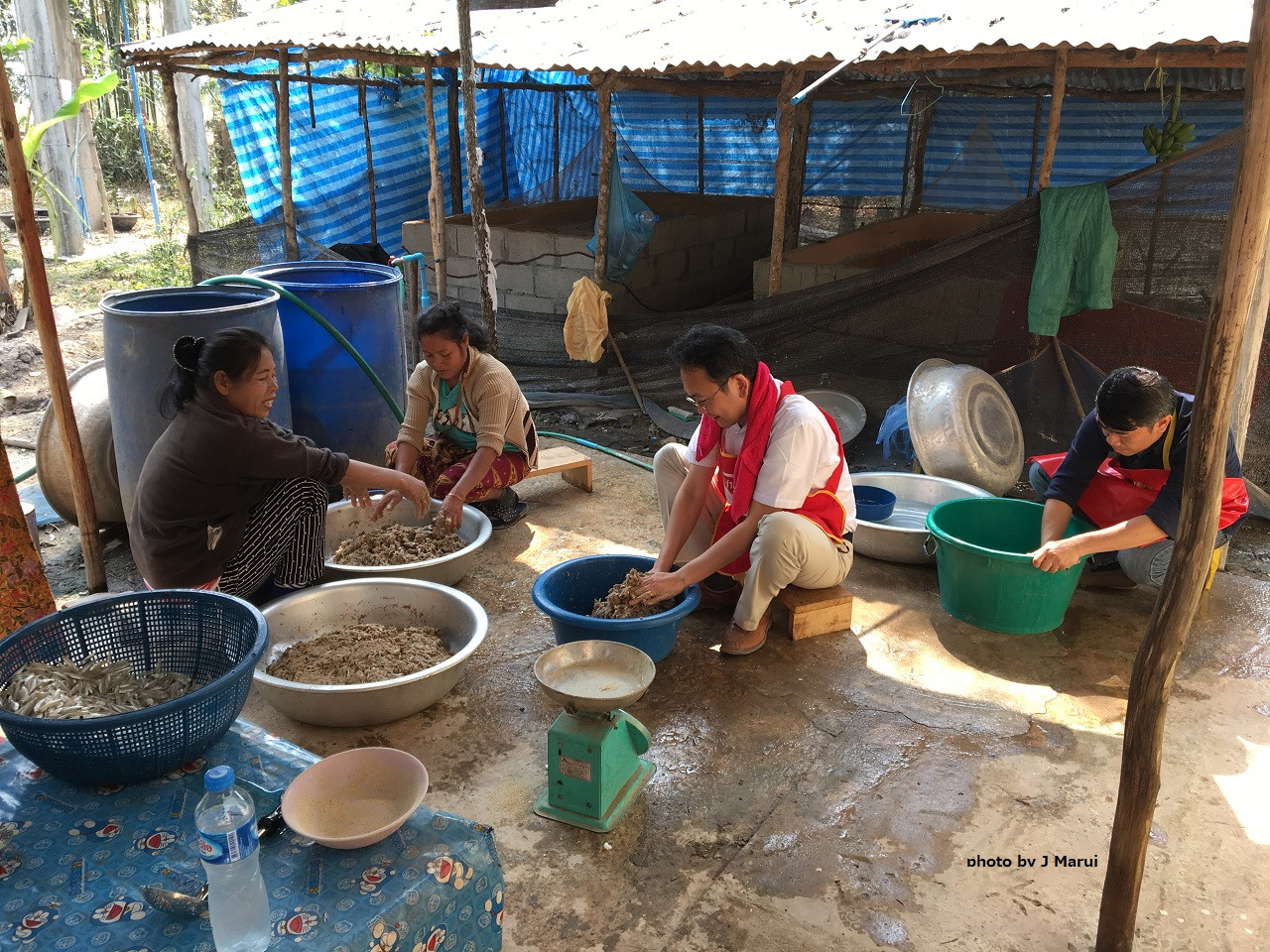Pick Up
505. Doing Fieldwork on Fermented Foods in the World

At JIRCAS, we focus on traditional fermented foods that make effective use of local agricultural and fishery products and benefit people's lives, such as fermented rice noodles from Thailand and fermented freshwater fish sauce from Laos, and we develop and disseminate technologies to improve their quality and preservation. In these efforts, we learn directly from local producers about traditional methods of production, actually making and tasting the fermented foods together, and listening to their stories, which also provides us with hints for our research and deepens our scientific understanding of fermentation mechanisms, ingredients, and microorganisms.
The book "Doing Fieldwork on Fermented Foods in the World" edited by YOKOYAMA Satoshi and published by the Rural Culture Association, features field studies on fermented foods produced around the world conducted by researchers in the humanities and natural sciences, and clarifies the human activities of making and using fermented foods, the position of fermented foods in the local food culture, and the relationship between fermented foods and society. The JIRCAS research on fermented freshwater fish sauce in Laos, including efforts to rediscover their value and improve their quality by combining indigenous knowledge with scientific knowledge is also featured in this book. A special exhibition of the same title is held at the Nagoya University Museum from March 22 (Tue) to September 24 (Sat), 2022 and a series of seven lectures related to the exhibition is scheduled to be held simultaneously in person and online.
Reference
YOKOYAMA Satoshi (Editor) 2022. Doing Fieldwork on Fermented Foods in the World. Publisher: Rural Culture Association (In Japanese)
Related Articles
Initial salinity adjustment effectively prevents histamine accumulation in padaek, a Laotian salt-fermented freshwater fish paste https://www.jircas.go.jp/en/publication/research_results/2020_c04
Liquefaction of Thai fermented rice noodles can be prevented by maintaining the product in acidic condition of pH around 4 https://www.jircas.go.jp/en/publication/research_results/2019_c01
Contributor: MARUI Junichiro (Biological Resources and Post-Harvest Division)
